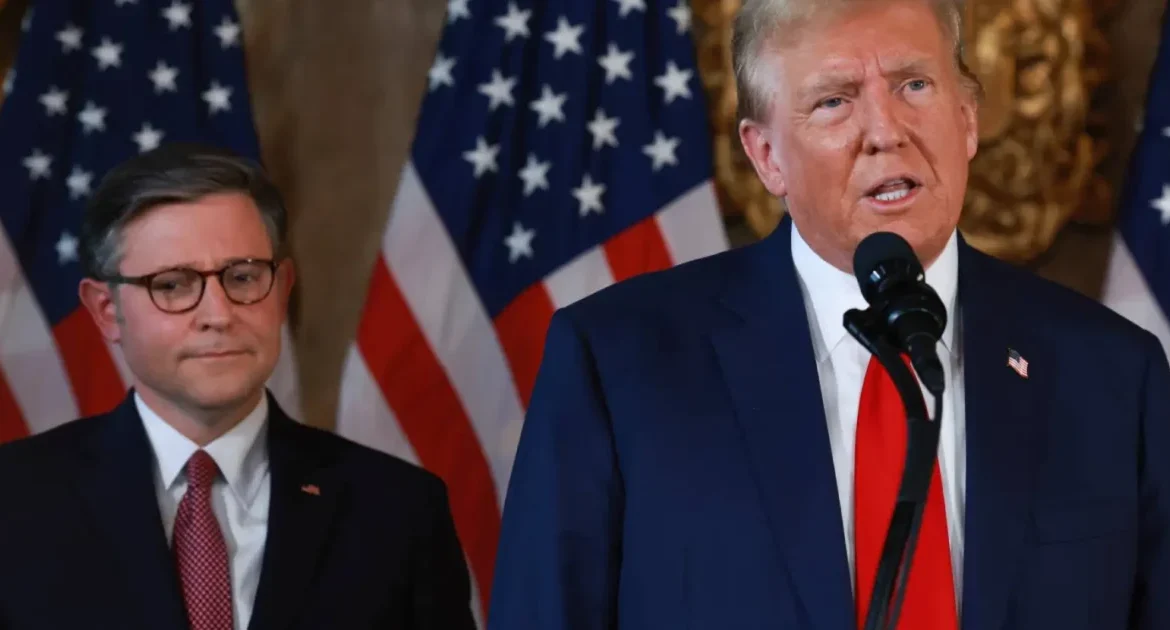
The Trump Card? “Big, Beautiful Bill” Could Allow “Capital War” with Foreign Investments in Lieu of “Trade War”


This week, the U.S. Court of International Trade issued a permanent injunction, temporarily halting President Trump’s “Liberation Day” agenda of imposing both blanket tariffs as well as reciprocal tariffs on countries that have been feeding off the United States in parasitic fashion for decades.
The injunction initially halted the 30% tariffs on China, 25% tariffs on Canada and Mexico, and the 10% blanket tariffs on most goods imported into the U.S., while allowing tariffs imposed under the Trade Expansion Act to continue. The former tariffs were implemented under the International Emergency Economic Powers Act (IEEPA).
Plaintiffs argued that the IEEPA does not explicitly authorize the President to impose tariffs, despite the statute stating “the President may, under such regulations as he may prescribe, …investigate, regulate, or prohibit- any transactions in foreign exchange.”
However, the statute, under 50 USC 1702(b), outlines “Exceptions to Grant of Authority” and states, “The authority granted to the President by this section does not include the authority to regulate or prohibit, directly or indirectly-“ but does not mention imposing tariffs as a response by the President in the following subsections.
Despite the ruling from the lower court, the US Court of Appeals for the Federal Circuit overturned the injunction less than 24 hours later while it considers the motions, as reported by The Gateway Pundit.
President Trump took to Truth Social to question whether the ruling was “purely a hatred of ‘TRUMP’?” and said that the court’s decision was “being hailed all over the World by every Country, other than the United States of America.”
Another Option Emerges
But another potential tool to balance unfair trade deals is making its way through Congress in Section 899 of the “Big, Beautiful Bill.” In the bill’s current form, the “Enforcement of Remedies Against Unfair Foreign Taxes” section would allow the taxation of foreign holdings of U.S. assets at a sharply increased rate if a foreign country is “discriminatory” in taxing the United States and its citizens.
According to Zerohedge, Deutsche Bank’s George Saravelos explained that:
- Weaponization of US capital markets into law. Section 899 challenges the open nature of US capital markets by explicitly using taxation on foreign holdings of US assets as leverage to further US economic goals. The parallels with the trade war over the last few months are clear. Numerous issues that are being referenced in the current trade war (eg. Digital Services Taxation) are also part of this legislation.
- Low bar to activate. Preliminary analysis suggests that the majority of developed market countries could fall under the scope of the new retaliatory taxation. Furthermore, the bar to activate retaliatory taxation is low, triggered by the Secretary of Treasury publishing a list of foreign “discriminatory countries”, though there is still uncertainty on this point.
- A problem for the twin deficit. The legislation provides scope to tax US-sourced foreign income at 20% under certain conditions. Especially notable is that the foreign government exception put in place under Reagan (think central bank reserve ownership of USTs) would be suspended.Put simply, the de facto yield on US Treasuries would drop by nearly 100bps. The adverse impact on demand for USTs and funding the US twin deficit at a time when this is most needed is clear.
This section would provide significant leverage regarding several controversial taxes that have been levied against Americans and American companies. For example, Australia’s media bargaining code may be retaliated against using Section 899.
The News Media Bargaining Code requires social media companies and search engines to pay Australian news organizations for their published content on U.S.-owned platforms.
Last month, Australian Prime Minister Anthony Albanese stated, “I have very clearly indicated Australia is not negotiating over the Pharmaceutical Benefits Scheme. We are not negotiating over the news bargaining code. We will not undermine our biosecurity,” according to Australia’s Financial Review.
Australia has approximately $400 billion invested in the U.S. via their superannuation (pension) funds, or about 20% of the total superannuation funds, with projections suggesting that number could rise to over a trillion dollars by 2035.
According to CNBC, France currently taxes revenues from online platforms at 3% while Germany is considering a 10% equivalent tax, known as a “digital service tax.” Those two countries combined hold over $475 billion worth of U.S. government bonds.
The post The Trump Card? “Big, Beautiful Bill” Could Allow “Capital War” with Foreign Investments in Lieu of “Trade War” appeared first on The Gateway Pundit.
